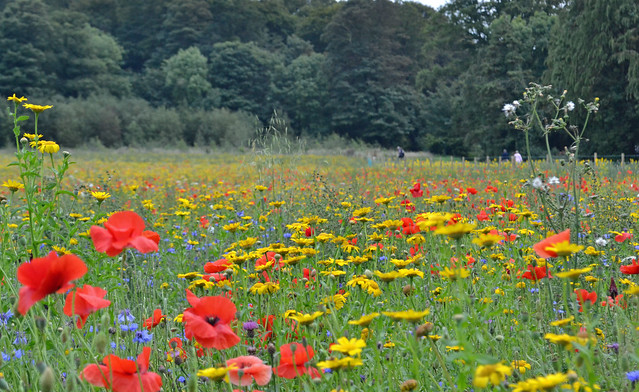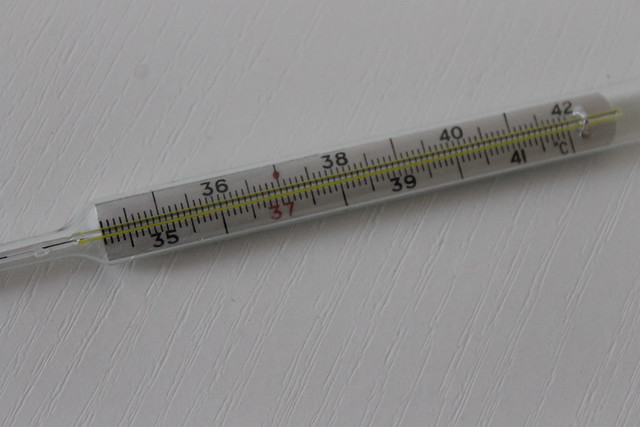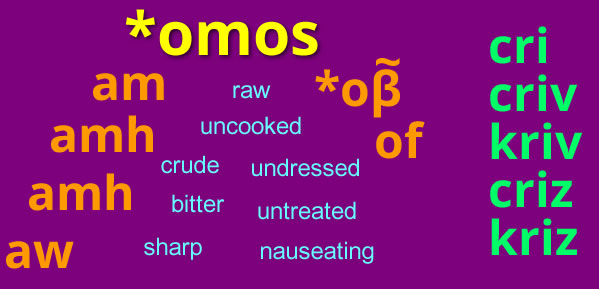Words for surface, skin and related things in Celtic languages:
| Proto-Celtic | *tondā = surface, skin |
|---|---|
| Gaulish | *tondā = surface, skin |
| Old Irish (Goídelc) | tonn, tond = surface, skin |
| Irish (Gaeilge) | tonn [t̪ˠɑun̪ˠ / t̪ˠuːn̪ˠ / t̪ˠʌn̪ˠ] = surface, skin faoi mo thoinn = under my skin, within me |
| Scottish Gaelic (Gàidhlig) | tonn [tɔun̪ˠ] = skin, hide |
| Middle Welsh (Kymraec) | tonn, ton, ton(n)en = ley, unploughed land |
| Welsh (Cymraeg) | ton [tɔn] = ley, unploughed land, turf, sod, sward, green, lawn, (earth’s) surface’ skin, rind, crust, peel, appearance, look tonnen = skin, rind, crust, peel, surface, sod, sward, bog, swamp, quagmire tondir = ley, lea-land toniaraf, toniaru = to cover with planks, boards, etc |
| Middle Cornish (Cernewec) | ton = unploughed land, meadow, lay |
| Cornish (Kernewek) | tonn = grass |
| Old Breton | tonnenn = rind, surface |
| Middle Breton | ton = rind, surface |
| Breton (Brezhoneg) | tonn = rind, surface |
Etymology: from the Proto-Indo-European *tend- (to cut off). Words from the same Gaulish / Proto-Celtic roots include tonne in English and French, tunna / tonna (tun, box) in Latin, and tona (surface, kin, bark) in Galician [source].
| Proto-Celtic | *krokkeno- = skin |
|---|---|
| Old Irish (Goídelc) | croiccenn [ˈkrokʲen͈] = skin, hide, bark, husk |
| Irish (Gaeilge) | craiceann [ˈkɾˠacən̪ˠ / ˈkɾˠæcən̪ˠ] = skin, surface cruachraicneach = hide-bound |
| Scottish Gaelic (Gàidhlig) | craiceann [krɛçgʲən̪ˠ] = skin, parchment craiceannaiche = skinner far-chraiceann = epidermis fo-chraiceann = hypodermic pàipear-craicinn = parchment |
| Manx (Gealg) | crackan [ˈkraːɣən] = skin, pelt, fur, hide, rind, peel, slough crackanagh = (of the) skin, cutaneous aachrackan = veneer fochrackanagh = hypodermic crackan screeuee = parchment |
| Proto-Brythonic | *krʉn = skin |
| Old Welsh | groen = skin |
| Middle Welsh (Kymraec) | croen, cruyn, croyn, crwyn = skin, hide, pelt |
| Welsh (Cymraeg) | croen [kroːɨ̯n / krɔi̯n] = skin, hide, pelt, peel, rind, surface, crust; film; a crusty or contemptible fellow croeni, croenio = to form skin, skin over, heal up croendenau = thin-skinned, sensitive, easily hurt, touchy croendew = thick-skinned, insensible, insensitive, callous croenen = thin skin, cuticle, pellicle, film |
| Middle Cornish (Cernewec) | crochen = skin |
| Cornish (Kernewek) | kroghen = hide kroghen lagas = eyelid kroghendanow = sensitive |
| Middle Breton | kroc’hen, krec’hen, krec’hin = skin, crust, membrane |
| Breton (Brezhoneg) | kroc’hen [ˈkʁoːχɛn] = skin, crust kroc’henenn = membrane |
Etymology: probably loaned from a non-Indo-European substrate language [source].
Words marked with a * are reconstructions.
Sources: Wiktionary, Am Faclair Beag, Online Manx Dictionary, Teanglann.ie, eDIL – Electronic Dictionary of the Irish Language, In Dúil Bélrai English – Old Irish glossary, Geiriadur Prifysgol Cymru, Gerlyver Kernewek, Gerlyvyr Cernewec, Dictionaire Favereau, TermOfis, Le dictionnaire diachronique du breton, Geriafurch, English – ProtoCeltic WordList (PDF), Etymological Dictionary Of Proto Celtic










